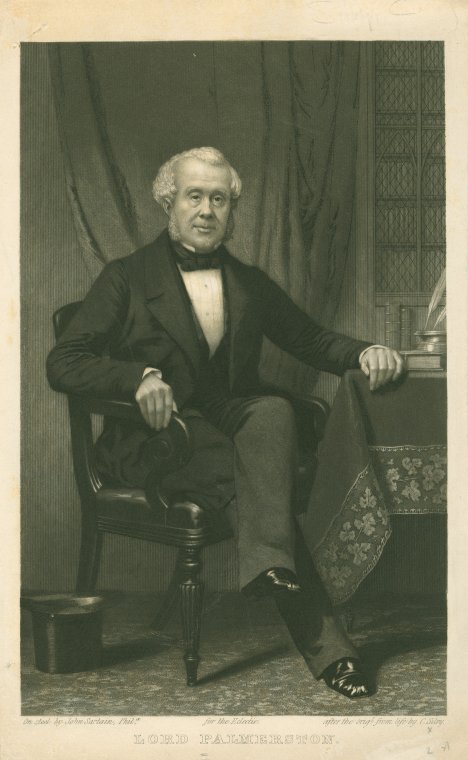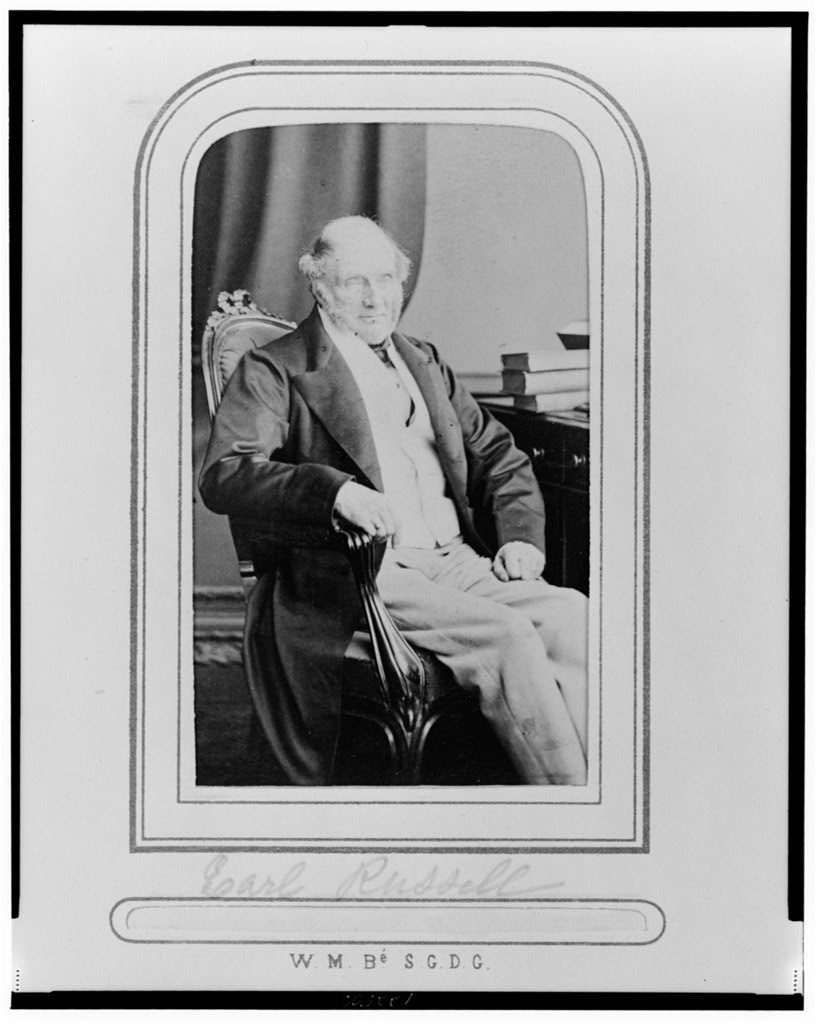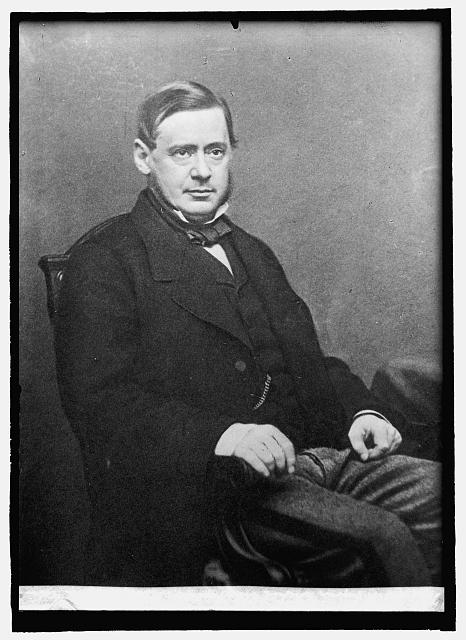
Henry John Temple, the Lord Palmerston
Serving as Prime Minister during the Civil War, Lord Palmerston, a Liberal, led the coalition government controlling Parliament. Though he publicly leaned towards the maintenance of British neutrality, past confrontation with the U.S. gave Palmerston some private satisfaction concerning its fractured nature. The Prime Minister saw the conflict in the U.S. as deserved, a result of the nation’s rapid and aggressive expansionism across the continent. Such an attitude played into Northern views that sympathies with the Southern cause were widespread within his offices and Parliament. However, Palmerston and his advisors perceived the potential impacts of British diplomatic missteps concerning action beyond neutrality, and so strove to maintain that position for the duration of the war.

John Russell, 1st Earl Russell
As head of the Foreign Ministry, Earl Russell directly oversaw policy and actions pertaining to British neutrality in the conflict. Both in coordination with Palmerston and with his degree of autonomy, Russell guided key parts of the Empire’s response to the Civil War. This included the expansion of provisions in Queen Victoria’s Neutrality Declaration to British territories, particularly concerning belligerent access to British ports. Russell more outwardly favored the maintenance of the British position throughout the war, though he was prepared for escalation such as during the Trent Affair of late 1861. In response to a lack of explanation or apology for the stopping of the Trent, the Foreign Minister issued an ultimatum to Seward and Lincoln, and supported efforts to secure the Canadian provinces in the event of a war with the North.

Richard Lyons, 1st Earl Lyons
Serving as the British Minister to the United States during the era of the Civil War, the Lord Lyons was a vital source of information for Russell’s office concerning the attitude of President Lincoln and Secretary of State Seward. It was Lyons who communicated the British position, and Russell’s ultimatum, in response to American actions concerning the Trent. In the aftermath of the Affair, Lyons and Seward collaborated on an expansion to Anglo-American cooperation concerning the lingering elements of the Atlantic slave trade. In negotiating the Lyons-Seward Treaty of 1862, both men sought to avoid further deterioration of relations between their nations.